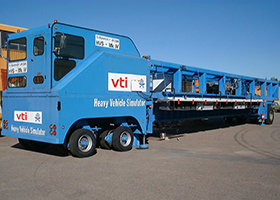High-density road infrastructure that emphasise maximum durability and minimum maintenance create inflexible systems, which put increased stress on urban trees and lead to increased risk for flooding. Over the past five years, the ‘Climate-proof solutions for urban surfaces’ project investigated how to create permeable hard surfaces that retain their load-bearing capacity, at the same time facilitate strong and healthy vegetation and also has the ability to act as retention magazines during intense precipitation.
The project took as its starting point increasing urbanisation and an ever-denser urban environment, coupled with increasingly severe climate disturbances may lead to flooding, infrastructure damage and deteriorating conditions for vegetation. City trees are slowly dying; in Stockholm, for instance, about 8,000-12,000 trees are in poor condition.
– Most cities have problems with drainage and climate change is increasing the incidence of flooding and pollution. Surface water overloads the drainage systems, including sewers, instead of being naturally filtered through sand and gravel surfaces, says Fredrik Hellman, researcher at VTI.

Researchers have used VTI’s Heavy Vehicle Simulator for testing of the load-bearing capacity of new designs. The wheel goes forward and back repeatedly to simulate a deepening of vehicle tracks corresponding to several years’ worth of traffic. Photo: Hejdlösa Bilder
The project identified materials and technologies that are suitable for sustainability: it developed cost-effective systems for urban tree planting and investigated the possibilities of new, sustainable methodologies for handling surface water, as well as permeable hard surfaces such as so-called skeletal soils.
– We have developed new, self-draining road designs using materials that are more stable, have better load-bearing characteristics and are easier to work with. The aim is to achieve improved design and functionality for trees and traffic, which would generate a more agreeable climate and a more attractive environment in the city, Fredrik Hellman says.
The project investigated permeability and traffic loading with respect to uncemented stone materials and developed a guide for the use of these new materials. The project also built several demonstration sites, containing 10 full-size constructions. A further advantage of these new materials is that the cost of repair and maintenance is reduced.
– VTI has tested permeability and load-bearing capacity of the different designs developed by the project, for example assessing the deepening of vehicle tracks on natural stone bases and how the materials cope with the loading of heavy vehicles.
About the project
The ‘Climate-proof solutions for urban surfaces’ project, which is financed by Vinnova, is due to be completed in the autumn of 2017. The following 24 stakeholders have participated in the project. Research: Swedish Cement and Concrete Research Institute (CBI), Technical Research Institute of Sweden (SP), Swedish University of Agricultural Sciences (SLU), Swedish National Road and Transport Research Institute (VTI). Municipalities: Uppsala, Stockholm, Växjö, Gothenburg, Helsingborg, Landskrona, Malmö, Lund. Industry: NCC, Cementa, Starka, Benders, Stenforsk. Consultants: SWECO, StormTac, Viös, CEC Design, Ramböll, Modicum, Trädgårdsanläggarna.
 Contact:
Contact:
Fredrik Hellman
fredrik.hellman@vti.se
VTI, Sweden






Follow us: